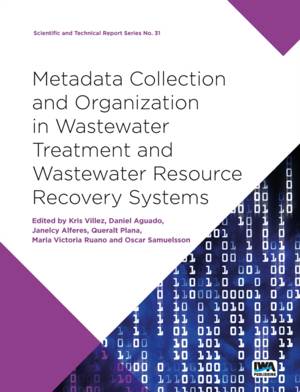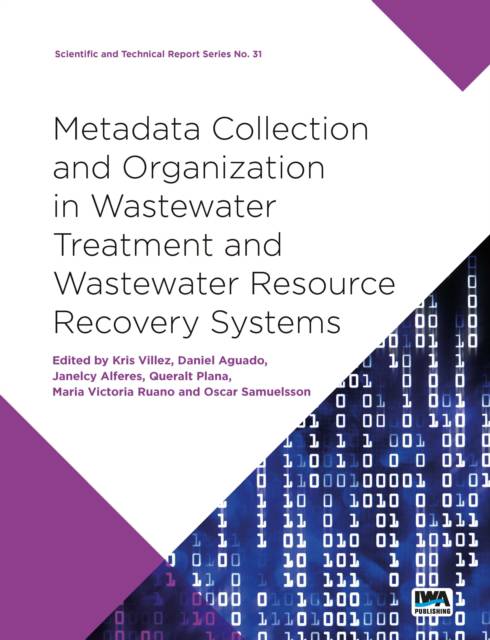
Bedankt voor het vertrouwen het afgelopen jaar! Om jou te bedanken bieden we GRATIS verzending (in België) aan op alles gedurende de hele maand januari.
- Afhalen na 1 uur in een winkel met voorraad
- In januari gratis thuislevering in België
- Ruim aanbod met 7 miljoen producten
Bedankt voor het vertrouwen het afgelopen jaar! Om jou te bedanken bieden we GRATIS verzending (in België) aan op alles gedurende de hele maand januari.
- Afhalen na 1 uur in een winkel met voorraad
- In januari gratis thuislevering in België
- Ruim aanbod met 7 miljoen producten
Zoeken
Meta-Data Collection and Organization in Wastewater Treatment and Wastewater Resource Recovery Systems
€ 174,95
+ 349 punten
Omschrijving
This Scientific Technical Report demonstrates meta-data strategies for water resource recovery facilities (WRRF), including the essential data validation with machine learning and traditional methods. The report is the result of extensive work from many water data experts and a utility focus group, with the dedicated application of WRRF data. Emerging trends in artificial intelligence and machine learning project unforeseen possibilities in managing our WRRF's. Hope is built upon the large data volumes collected with high frequency from both existing sensors, as well as new uncoordinated data sources outside the fence. The data variety however makes it challenging to reuse data, especially when the purpose changes. Without a proper data description (meta-data), modelling and autonomous digitalization will be difficult, and likely remain a vision. Likewise, quantified data quality are key meta-data to decide when data are fit-for-purpose. The report aims to fill the gap of how meta-data can be used in practice to leverage the value of data in a WRRF context. The report describes existing methods and systematic methodologies to collect and reconcile meta-data describing signal generation, signal quality, and contextual meta-data. The sometimes ambiguous data terminology is clarified with real WRRF examples to endorse adoption in practice. Guidelines for data quality assessment is a central part and cover both standard sensor validation protocols, as well as a separate chapter on data analytical techniques. The latter serves as a smorgasbord with mechanistic and data-driven algorithms for online sensor quality assessment. The report is intended as a reference guide for the practitioner who aims at future proofing, but also maximizing, the current use of today's recorded WRRF data. The content bridges theory with current practices and provides a base tool for the WRRF data practitioner.
Specificaties
Betrokkenen
- Uitgeverij:
Inhoud
- Aantal bladzijden:
- 274
- Taal:
- Engels
- Reeks:
Eigenschappen
- Productcode (EAN):
- 9781789061147
- Verschijningsdatum:
- 15/05/2024
- Uitvoering:
- Paperback
- Formaat:
- Trade paperback (VS)
- Afmetingen:
- 189 mm x 246 mm
- Gewicht:
- 546 g

Alleen bij Standaard Boekhandel
+ 349 punten op je klantenkaart van Standaard Boekhandel
Beoordelingen
We publiceren alleen reviews die voldoen aan de voorwaarden voor reviews. Bekijk onze voorwaarden voor reviews.








